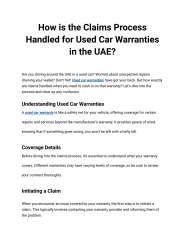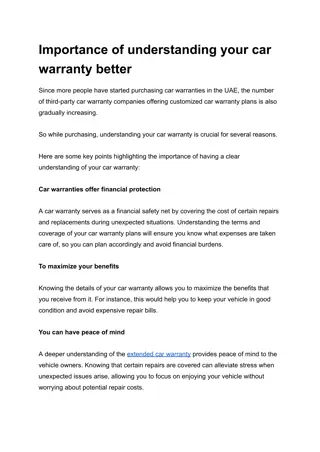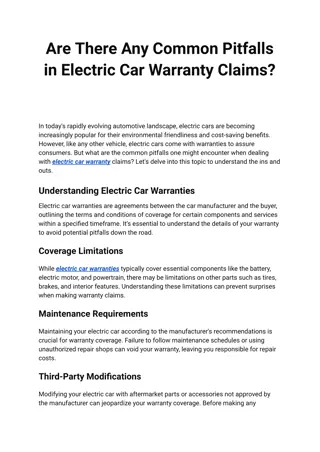
Understanding Conditions, Warranties, and Buyer's Duties in Commerce Contracts
Explore the distinctions between conditions and warranties in contracts, the principle of Caveat Emptor, and the duties of buyers in commerce transactions. Discover the rights of unpaid sellers and their implications in commercial transactions.
Download Presentation

Please find below an Image/Link to download the presentation.
The content on the website is provided AS IS for your information and personal use only. It may not be sold, licensed, or shared on other websites without obtaining consent from the author. If you encounter any issues during the download, it is possible that the publisher has removed the file from their server.
You are allowed to download the files provided on this website for personal or commercial use, subject to the condition that they are used lawfully. All files are the property of their respective owners.
The content on the website is provided AS IS for your information and personal use only. It may not be sold, licensed, or shared on other websites without obtaining consent from the author.
E N D
Presentation Transcript
BY JAHANAVI DEO DEPARTMENT OF COMMERCE M.L ARYA COLLEGE,KASBA B.COM 2_DATE:15/05/2020
CONDITION AND WARANTY DISTINGUISHED 1. As to value: A condition is a stipulation which is essential to the main purpose of the contract, whereas a warranty is a stipulation which is collateral to the main purpose of the contract. 2. As to breach: The breach of a condition gives the aggrieved party the right to repudiate the contract and also to claim damages. 3. As to treatment: A breach of condition may be treated as a breach of warranty. But a breach of warranty cannot be treated as a breach of condition. Caveat Emptor
Caveat Emptor Let the buyer be aware A warning that notifies a buyer that the goods he or she is buying are "as is," or subject to all defects. When a sale is subject to this warning the purchaser assumes the risk that the product might be either defective or unsuitable to his or her needs. This rule is not designed to shield sellers who engage in Fraud or bad faith dealing by making false or misleading representations about the quality or condition of a particular product. It merely summarizes the concept that a purchaser m ust examine, judge, and test the product considered for purchase himself or herself
DUTIES OF BUYER Duty to accept the goods and pay for them in exchange of possession. Duty to apply for delivery of goods. Duty to demand delivery at a reasonable hour. Duty to accept instalment delivery and pay for it. Duty to take risk of deterioration in the course of transit. Duty to intimate the seller where he rejects the goods. Duty to take delivery. Duty to pay the price . Duty to pay damages for non-acceptance
Unpaid Seller The seller of goods is deemed to be an "unpaid" seller when the whole of the price has not been paid or tendered; or when a bill of exchange or other negotiable instruments has been received as conditional payment the conditions has not been fulfilled by reason of the dishonour of the instrument or otherwise. [Sec 45(1)
Rights of Unpaid Seller Notwithstanding that the property in the goods may have passed to the buyer, the unpaid seller, has, by implication of law a)a lien on the goods for price while he is in possession of them; b)in case of insolvency of the buyer a right of stopping the goods in transit; and c) a right of resale. [Sec 45(1)






















